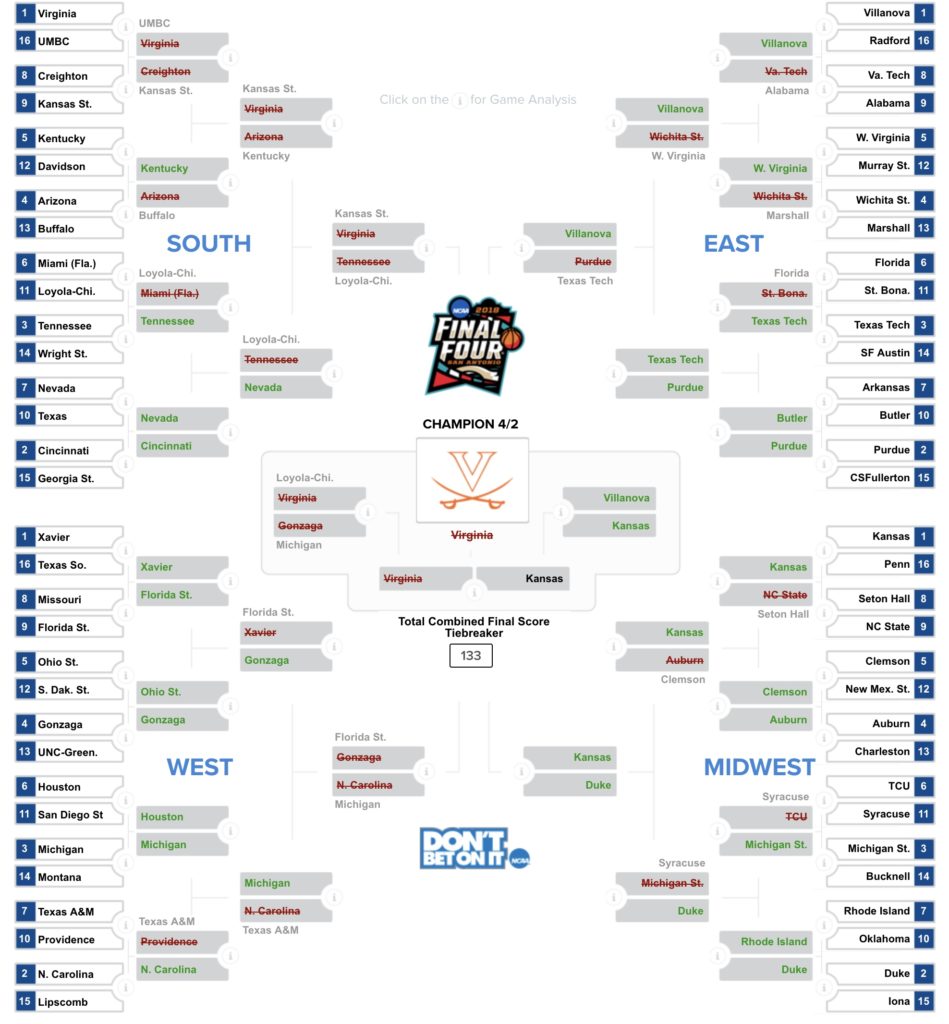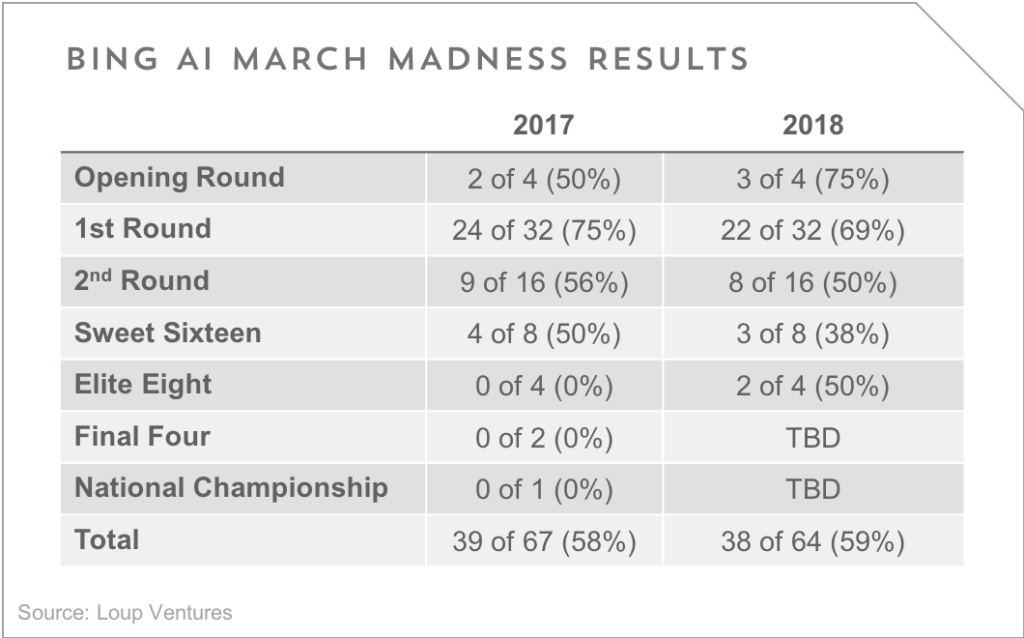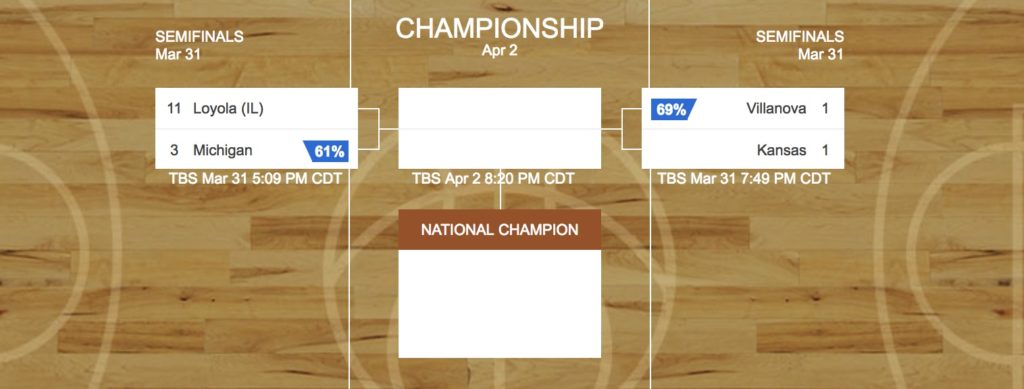In what is becoming an annual tradition, we entered a bracket chosen by artificial intelligence into the Loup Ventures March Madness pool. (See our 2017 results here) Given this year has proven especially challenging to predict due to the uncanny number of upsets, Microsoft Bing Predicts’ bracket is in surprisingly good shape. Heading into the Final Four this weekend, it is tied for 2nd place out of 13 entrants. Here’s a look at its picks.

Results. To date, Bing has chosen 38 out of 64 games correctly, including the opening round. Bing was 3 of 4 in the opening round, 22 of 32 in the 1st Round, 8 of 16 in the 2nd Round, 3 of 8 in the Sweet Sixteen, and 2 for 4 in the Elite Eight.
It’s also important to note that if you look at Bing’s bracket now, it will show a different story because it re-picks winners for matches after each round. Even with this adjustment, it only picked 48 of 64 games correctly (75%, compared to 2017’s 72%) leading into tonight’s games.
Here are Bing’s results this year compared to last:

In 2018, Bing performed slightly worse in the 1st, 2nd, and Sweet Sixteen rounds. More importantly, Bing correctly picked 2 of the Final Four teams – no small feat for anyone, man or machine.
Methodology. The Bing Predicts algorithm factors in millions of data points in an effort to create the best predictive model. The algorithm looked at every college basketball game played in the last 16 years in an attempt to analyze correlations between measurable statistics and wins. The algorithm will give an output of the likelihood a team will win the game. It’s not meant to choose a certain winner, but the higher the percentage, the greater the disparity amongst the teams.
Walter Sun, an architect of the Bing Predicts algorithm, was asked by Wired Magazine about some of the important considerations in the algorithm. Defensive efficiency, strength of schedule, coaching rankings, and miles traveled were a few of the metrics that the algorithm measures.
Who will win the NCAA Championship? Below are the algorithm’s estimations for this weekend’s matchups.

Bing pits Michigan vs Villanova in the National Championship game on Monday night. This year has stumped even college basketball fanatics, and the AI bracket is no exception. At the end of the day, the algorithm is predicting the percentage chance each team has to win the game. It may be entirely accurate, but if Villanova has a 69% chance of winning, they also have a 31% chance of losing – thus is the nature of predicting something binary like the outcome of a sports game. What’s interesting, however, is that Bing picked these two teams to meet in this round at the beginning of the tournament with Kansas winning. Looking at it now, the algorithm gives Villanova the higher probability of winning. That’s quite the change of heart.
After a last-place finish in our pool last year, Microsoft’s algorithm has performed much better against us, whether by luck or by real improvement. If Kansas wins the NCAA tournament, there is a chance the AI bracket could win our pool. We’ll be watching this weekend to see if man will prevail over machine for another year.
Disclaimer: We actively write about the themes in which we invest: artificial intelligence, robotics, virtual reality, and augmented reality. From time to time, we will write about companies that are in our portfolio. Content on this site including opinions on specific themes in technology, market estimates, and estimates and commentary regarding publicly traded or private companies is not intended for use in making investment decisions. We hold no obligation to update any of our projections. We express no warranties about any estimates or opinions we make.